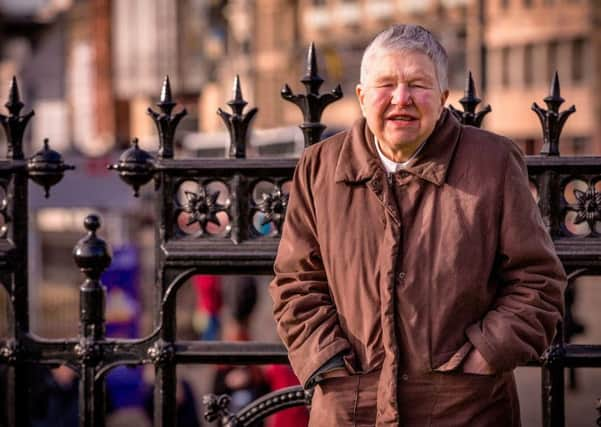RNIB chief hails progress after 150 years of support


Sandra Wilson was registered blind from the age of four, had little sight as a child and it gradually deteriorated in the 1980s.
The 70-year-old said at the time education for blind and partially sighted children was residential, with Wilson attending the Royal Blind School in Edinburgh from the age of five.
Advertisement
Hide AdAdvertisement
Hide AdShe described the experience of leaving home to attend the school as a “fairly traumatic” and highlighted how blind and partially sighted children can now go to school in their home area, which means they grow up enjoying the benefits of family life.
However, Wilson says the Royal Blind School taught her to stand on her own two feet and also taught her Braille. She feels that today’s children, while gaining from advances in technology, lack the peer support that she had and sometimes find it difficult to make friends locally and take part in activities such as sport.
“While it can present challenges, technology has benefited people with sight loss,” she said.
“I went to university with a cassette tape-recorder, took lecture notes with a Braille-frame and style, and used a Perkins Brailler and reel-to-reel tape recorder for home study. The RNIB Students Library provided some material in Braille and I had a team of volunteer readers.
“Today, students have access to digital technology and the internet and much more portable equipment.
“But they still face the challenges of inaccessible websites and inaccessible software. Technology has made a huge difference to daily living too, with talking microwaves, talking kitchen scales and a wide range of reading options, including talking books and apps to read on a phone.
“Some TVs have audio menus and audio-described programmes and films are increasing.”
Around 170,000 people in Scotland and more than two million in the UK are living with sight loss that has a significant impact on their daily life.
Advertisement
Hide AdAdvertisement
Hide AdIt is predicted that by 2050 the number of people with sight loss in the UK could double to over four million.
James Adams, director of RNIB Scotland, said the charity had been pivotal in securing major social, legislative and technological changes to improve the lives of blind and partially sighted people.
He said: “In the Victorian era, unless you came from a well-off family, being blind usually meant a lifetime of poverty, ending all too likely in the workhouse.”
He added: “More worryingly, sight loss is projected to double over the next two decades because we are an ageing population and sight-threatening conditions such as diabetes are on the increase.”
The RNIB will mark its 150th anniversary on 16 October.